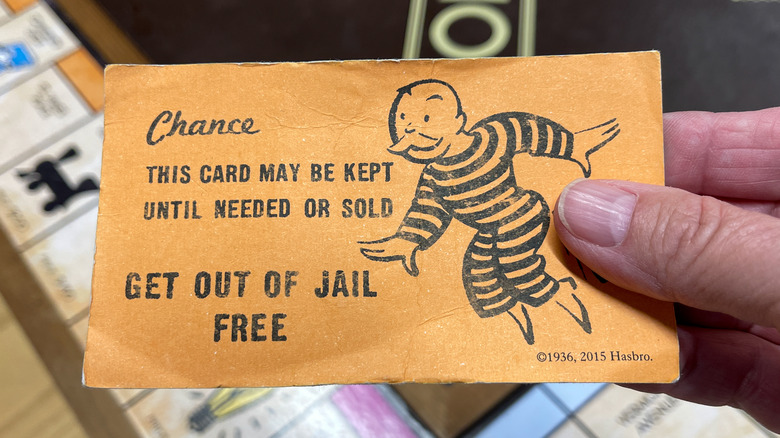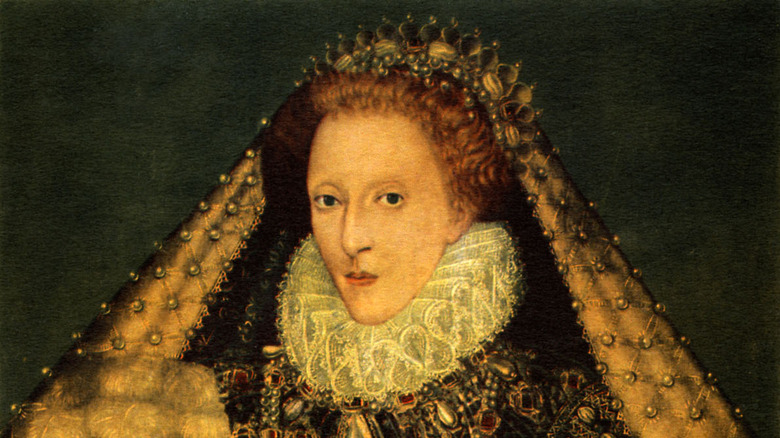The First English Lottery Was A Literal Get Out Of Jail Free Card
The roots of modern-day lotteries date back centuries. The idea of dividing property and drawing lots to determine who got what can be found in the Bible, according to Britannica. The ancient Romans gave away party gifts using their form of a lottery system. Guests had pieces of wood with symbols on them, and they later distributed the prizes based on the symbols.
Ancient Rome figures prominently in lottery history for another reason. Augustus Caesar created a lottery that seems quite similar to the way lotteries work today. He used a lottery to fund projects to maintain Rome (via the New Yorker), a fundraising tactic that proved popular in other parts of Europe later on. From 1520 to 1532, King Francis I of France even allowed several cities to run lotteries for profit, per Britannica. In only a few decades, an English queen would also try her hand at holding a special lottery.
Queen Elizabeth I's lottery had a special bonus
In 1566, Queen Elizabeth I created a lottery that offered up a number of tempting prizes. The grand prize was 5,000 pounds, which is equal to about 850,000 pounds (roughly $1 million in U.S. currency) today, per the Daily Mail. The second place winner was to take home another big prize worth 3,500 pounds. In all, the first 11 winners would receive some type of monetary reward. The winners would receive their prizes in a combination of gold and goods, such as linen and tapestries.
To enter the lottery, however, was no easy feat because of the high ticket price. Wannabe winners had to cough up 10 shillings per ticket, which was beyond the reach of many people at the time. But as an added incentive, Queen Elizabeth gave ticket buyers a surprising bonus. She permitted them to have amnesty from prosecution, effectively creating a get-out-of-jail-free card for lottery participants (via the British Library). There were a few exceptions, of course. No one was going to get off the hook for murder or treason.
Queen Elizabeth I hoped to raise money with her lottery
Queen Elizabeth I hoped that this lottery would be the answer to some financial difficulties. She wanted to use the money from the ticket sales to underwrite the cost of fixing some of her ports and helping improve her navy, according to Ancient Origins. The queen faced a number of threats to her reign from both inside and outside the country, having risen to the throne after the death of her Catholic half-sister Queen Mary in 1558 (via the official royal site). Elizabeth, a protestant, faced several challenges as a monarch by those who wished to return England to being a Roman Catholic country.
The lottery, however, didn't go as planned. Only about 10% of the 400,000 lots, or tickets, were sold. There seemed to be a lot of logistical headaches associated with the lottery in addition to low sales, including holding the drawing in 1569 – three years after the project's start, per the Daily Mail. This flop of a lottery definitely put a damper on the queen's construction plans for a time, and she ended up finding other ways to get the necessary funds. She got a loan to cover part of the expenses and sold tavern licenses to bring in more cash.


